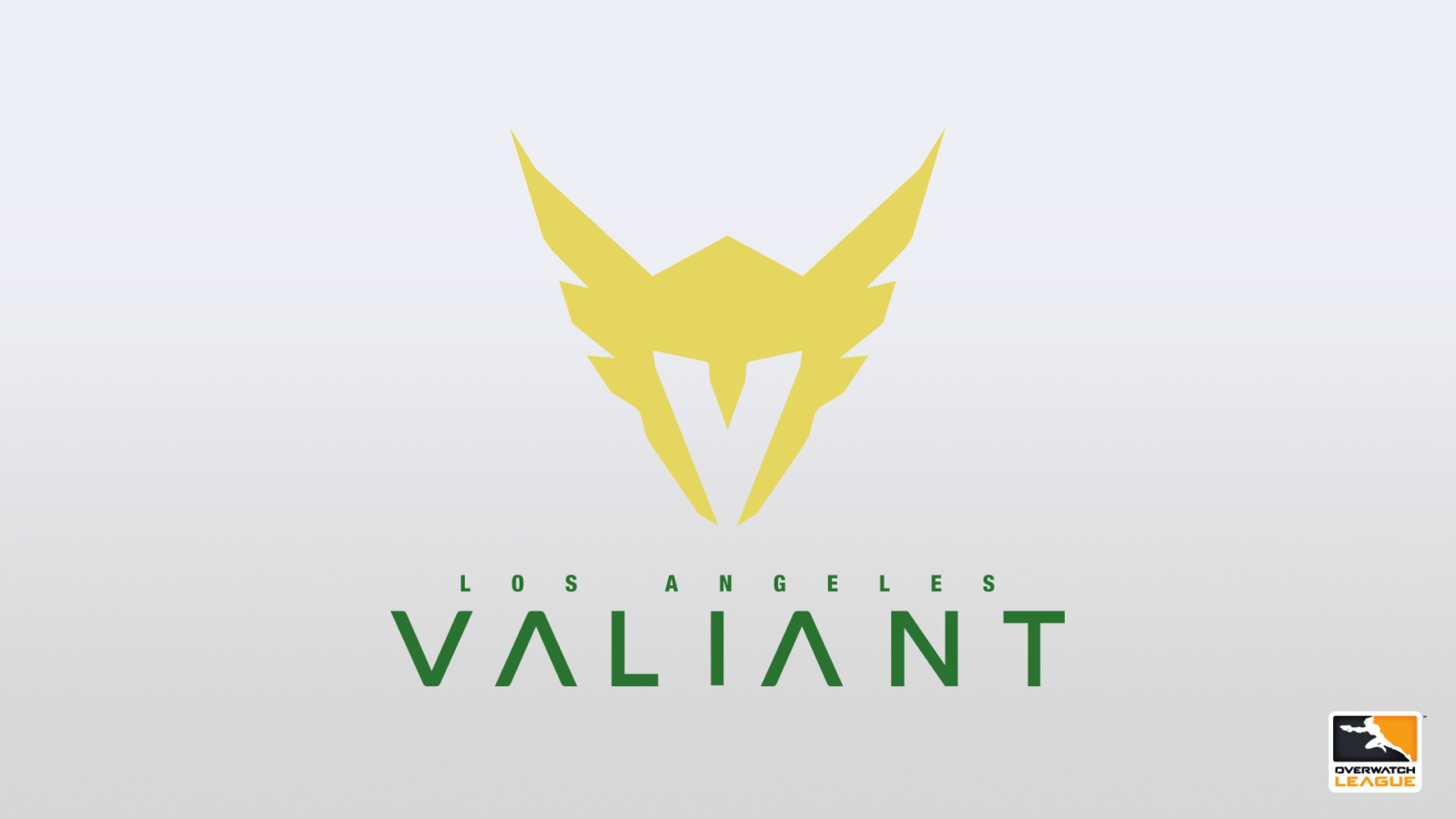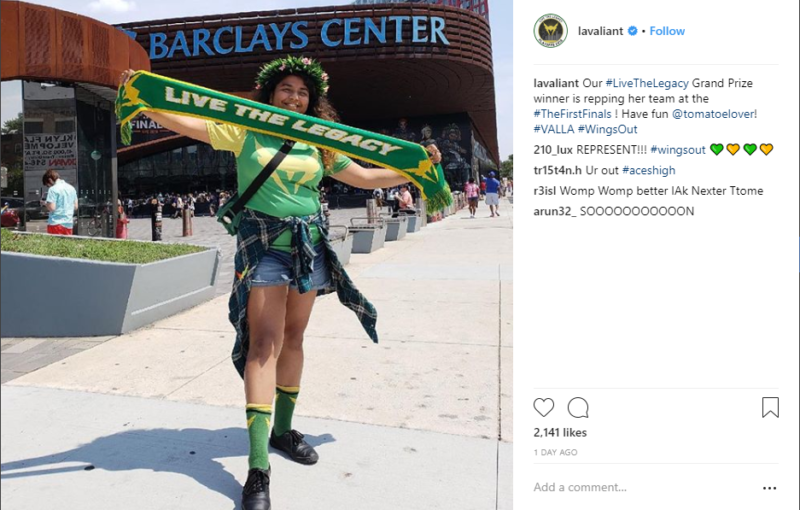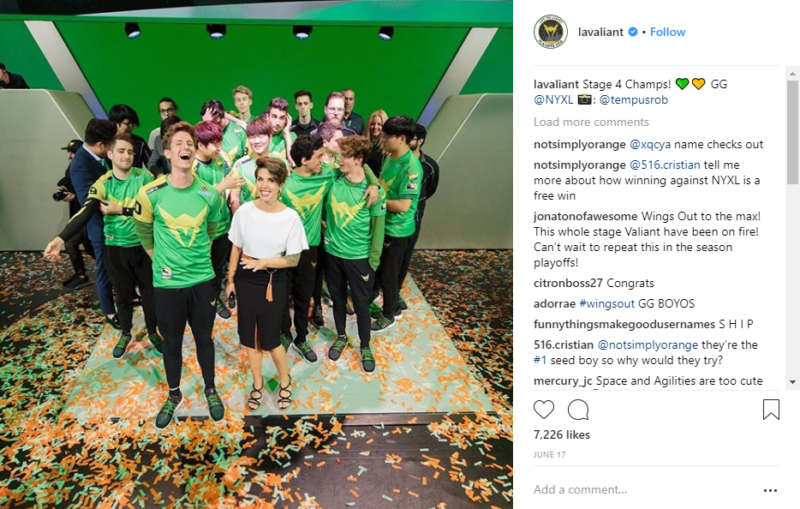NEW YORK, N.Y. — Overwatch League’s inaugural season finished with the London Spitfire’s dominant play over the Philadelphia Fusion at the Barclay’s Center Saturday.
Los Angeles Valiant President Ari Segal was in town to watch the Grand Finals and spoke with The Daily Walkthrough about his team’s culture, rivalry with the Los Angeles Gladiators and plans for Season 2.
Being one of the two teams in the only innate rivalry of the League, Segal said it has been a positive experience from the beginning despite what he sees as “market misconceptions.”
“There’s a little bit of a, of a market, a misconception, which is that because there are two teams in our market we’re somehow at a disadvantage … We see it as an advantage. We see it, first of all, as great for narrative and storytelling. Inner city rivalry is awesome. Rivalry in sports, which is awesome,” Segal told TheDW. “If you think about it, we’re really doubling our marketing spend because whatever the Gladiators are spending, whatever we’re spending, all of that is just accruing to the benefit of increasing awareness of Overwatch League clubs. It can be a very symbiotic relationship.”
Segal referenced his time with the Anaheim Ducks and the team’s relationship with the Los Angeles Kings as a rivalry success story he hopes to foster with the Gladiators.
Michael Schulman of the Ducks and Luc Jean-Marie Robitaille of the Kings “collaborated extensively both on the business side and were very close personally. A lot of the growth of hockey in Southern California over the last 10, 15 years is attributable to the collaboration between the Ducks and the Kings.”
A long-lasting Los Angeles rivalry needs not just collaboration, but strong individual team identities. Culture is a major focus for Segal, who honed in on two aspects of Valiant culture he’s proud of.
Credit: Los Angeles Valiant Instagram
“Number one is the emphasis on in-real-life experiences. Absolutely, and without critique, esports is a digitally-native product and it always will be. That offers benefits and scale no sport has ever seen in the history of the world,” Segal explained. “At the same time, we believe, I believe, that there is something about tangible, physical experiences that is also valuable.”
The Valiant hosted Playoff Watch Parties in four locations around California leading up to their eventual loss to the London Spitfire. Those parties allowed fans to physically come together and cheer on their team.
And that, Segal said, is ultimately more important than the game itself.
“If you’re doing your job correctly as an executive, what’s happening on the field is kind of a distraction. What you’re really trying to build is a fan community, and the reason you’re trying to build that is that it’s the only part of the experience that you can control. You can’t control what happens on the field. You can’t control wins and losses. Players are going to cycle through, and so, if you can make the connection between fans and your team, something that’s as much about themselves and their experience as it is about the particular players in a particular game of a particular season or record or title or anything else, you’re going to have a stickier, more engaged, more passionate fan base for generations.”
All Overwatch League teams struggle with the fact that, by virtue of their newness, many fans initially picked their team based on player loyalty, color scheme and parent organization. That makes for a flimsy culture, especially if a team is location-based like with the League.
Beyond in-real-life experiences, the Valiant focus on promoting their values to further engage fans. They hosted an L.A. Pride Party in June and a Girls in Gaming summit with Microsoft in May that, according to Segal, brought in more than one million “social media engagements” with no paid advertising.
“We are and will remain the most inclusive brand in esports … It’s not just a brand value. I mean, if you look at the complexion of our leadership team and our management team, we’re a diverse group of people. We’re inclusive. If you look at the way that we moderate our Discord, we are inclusive. If people don’t abide by those norms, we are very, very quick to kick them out. That’s why, by the way, we have the highest percentage of female fans in Overwatch League of any team.”
First iteration parties and activations don’t always work out as planned, though. Overwatch League teams played their Season 1 matches at Blizzard Arena in Burbank. Segal admitted the Valiant’s expectation at the beginning of the season was that they’d have an easier go of things because they’re one of the L.A. teams and everything is hosted there.
“That really did not work as we expected,” Segal told TheDW. “For obvious reasons, Blizzard [Entertainment] really had to restrict what teams are doing around the venue and perhaps they even need it to be a little bit more draconian with us.”
They poured money and resources into events around Blizzard Arena since they couldn’t do activations inside. By the front door and in the parking lot, Segal admitted “it just didn’t work.” Part of that failure had to do with losing fans as soon as they went inside.
“Losing complete control when someone enters the venue really cut you off at the knees from the activation that you’re really trying to have,” Segal said. “What you’re trying to communicate to folks isn’t just coming out with us for 30 minutes after you parked your car. What you’re trying to communicate … is ‘come and hang out before the game, eat and drink and then come to the game and stay with us.’ Right? And because we couldn’t do that, we couldn’t deliver on the second half. I thought that experience came up really short.”
The Playoff Watch Parties were the iteration that came from the failed on-site events because they allowed the Valiant to control fans’ experience through the duration.
The end of Season 1 saw the Valiant place second overall behind the New York Excelsior, but they struggled significantly on and off the field in the beginning. Focusing on their culture and in-real-life experiences, Segal said, helped the team move past earlier growing pains, even if he believes the Valiant’s strong finish has been overshadowed by prior drama.
“Through the first two stages we were not a very good team,” he said. “You remember, we had this issue in our “Inside L.A. Valiant” episode 2 with conflict on our team between uNKOE [Benjamin Chevasson] and Verbo [Stefano Disalvo], and then we had the incident with Noah [Whinston] and Brady [‘Agilities’ Girardiat] at the In-N-Out, and it just seemed like things were kind of spiraling. People didn’t think of [us as] a top team because we weren’t. I don’t think they thought of an inclusive culture because that wasn’t what was being covered.”
Segal argued that the Valiant’s improvement, winning Stage 4, winning the Pacific Division and coming in second in the League haven’t been recognized.
Credit: Los Angeles Valiant Instagram
“I have not seen that story really written anywhere,” he lamented. “We kind of missed an opportunity to capitalize on competitive success. I think our competitive success was just out of sequence with when marketing spend was really being deployed … It wasn’t resonating.”
Now that Overwatch League is in its offseason, Segal is focusing on which players will stay “with us for many years and which of those players were part of this season.” A critical part of those decisions will be franchise faces — the players associated with a specific team for many years. While Segal wouldn’t name names, he did confirm it’s something they’re actively looking at.
“We think about who could be a face or faces of the franchise. You’re investing resources, not just the salary, but you’re investing resources to prop someone up as the face of a franchise … You’re basically spending money to build their personal brand so there’s a real cost when you trade the face of it. But yeah, we have [thought about it] and we have some folks in mind for that.”
As for Grand Finals without the Valiant, Segal is disappointed but happy at the unexpected outcome.
“The grand finals are kind of unexpected, which is fun … Might there have been an easier narrative for casual fans to just understand New York versus L.A. because there’s New York versus L.A. in many things, and there’s that coastal rivalry. Yes, maybe,” Segal told TheDW. “But I don’t think that tells the story of this League quite as well as Philly and London. Certainly, I wish it was L.A. and London, I think that would have been effective too.”
The Grand Finals have come and gone and it’s time to focus on preparing for Season 2. The Valiant are going to work on cementing their culture with their fans, according to Segal. Externally, that includes communicating their message, being transparent and living “their values.” Internally, the team wants to keep expanding diversity of skill sets and backgrounds and will be doing an internal audit to look at what they can improve.
Segal hedged at picking up a Contenders roster, although he did say it’s being looked at.
“It’s still to be determined. We haven’t candidly had time to really look at the economics of Contenders. Figure out like, what the cost-benefit is. Plus, as kind of the market for player talent matures in Overwatch League, I think there’ll be a little bit more visibility into what’s the value of having this kind of dedicated player development arm.”
And Segal’s message to the Gladiators?
“Wings out.”
Katie Frates is the editor-in-chief of The Daily Walkthrough. Follow Katie on Twitter and Facebook, and signup for The Daily Walkthrough for the latest on gaming and esports.



